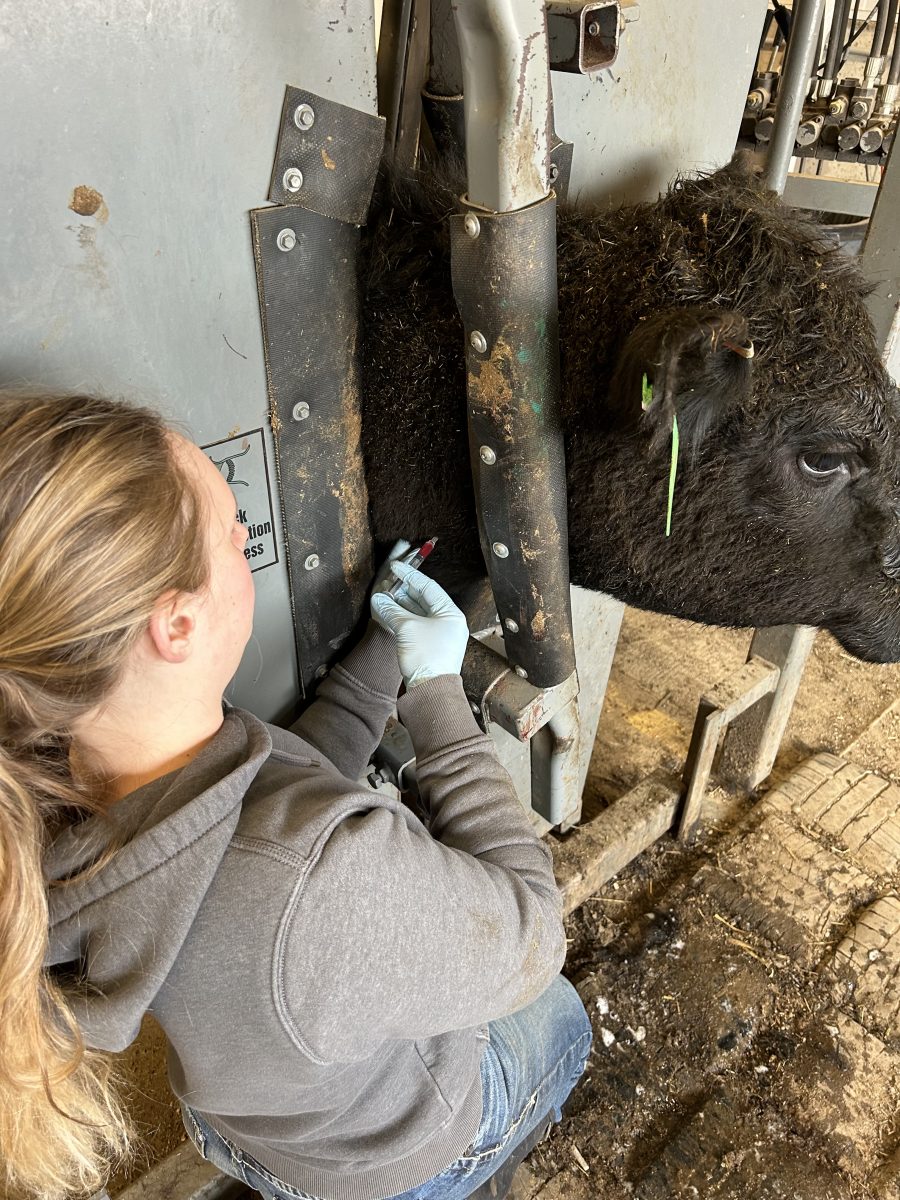Editorial: One in five adults have a diagnosable mental illness.
October 5, 2016
Mental health awareness is the most relevant issue facing us today.
One in five adults have a diagnosable mental illness, according to the National Alliance on Mental Illness.
Sit in The Union and watch students walk by. Watch professors walk by. Watch community members, friends and strangers walk by.
One in five.
They’re dealing with stress and anxiety and depression. People struggle with it, and we can’t avoid this pressing issue in our community.
We, at The Collegian, want to bring attention to this with our special section focusing on mental health at South Dakota State University. This edition falls on Mental Illness Awareness Week with World Mental Health Day on Oct. 10.
College is one of the most important places to address mental health awareness and mental illness. Stress about school, the transition to independence, relationships, work and the future constantly weigh on a student’s mind. The stress can start small and then build. But we can’t let that stress grow.
We, at The Collegian, encourage people to understand mental illness and mental health awareness. We encourage them to take steps to support people who struggle with mental illness. We encourage university officials and others to address mental health awareness more seriously.
There’s still a taboo surrounding mental illness. Perceptions are still negative at times. But strides are being made to better address the issue.
Efforts are being made at SDSU to expand Counseling Services. The Common Read this year, “Boy Meets Depression,” focuses on depression and helps facilitate discussions about mental illness.
But there is still more to be done.
Counseling Services deserves more funding, space and staff. There are about 1,500 students to every on-campus counselor. Even using the “one in five” statistic, that’s 300 students who may already have a diagnosable mental illness for only one counselor.
At the beginning of the year there are more students coming to Counseling Services because they’re facing transitional changes. This year there may be even more students coming because the Common Read allows them to recognize themselves in the text.
There are some of us, at The Collegian, who can recall wanting to meet with a counselor to talk about stress or other pressing issues but had to wait and schedule an appointment weeks out at a time. Students will call and are disappointed because although their situation and feelings aren’t necessarily an emergency, they still want to talk about it.
Even for students who might not necessarily have depression or other mental illnesses, it’s important for them to be able to talk about how they’re feeling. Counseling Services gives them that opportunity to think through their thoughts. They learn how their feelings are valid. They learn that it’s OK to not always be happy. They learn it’s OK to feel emotions.
Students who are at risk of physically harming themselves are transferred to the psychiatric hospital in Sioux Falls rather than a safe place closer to campus. This distance from the campus makes it difficult for students who have to go to the hospital and be away from their friends. Some students may not even want to check into the hospital because of the distance.
Our editorial last week focused on the university’s need to address inclusivity and diversity. University officials need to address the increase of mental health awareness and mental illness at SDSU as well.
But the strides already taken at SDSU are great and will have a lasting impact on students and this issue. And there are other resources at SDSU and in the Brookings community to help address mental illness such as the Helpline Center, Text4Hope and Lost & Found.
Professors at SDSU are becoming more understanding about mental health awareness as well. Some professors may tell their students they can take a “mental health day” if they’re too stressed with the weight of other obligations or worries. They will pay attention to your situation and concerns and try to help in whatever way keeps students healthy.
This type of attention and effort is exactly what we need at SDSU. Mental illness shouldn’t be stereotyped and people who have mental illnesses should not be ostracized.
One in five.
Stance:
Strides taken to address mental illness at SDSU are in the works, but there’s still more work to be done.





















